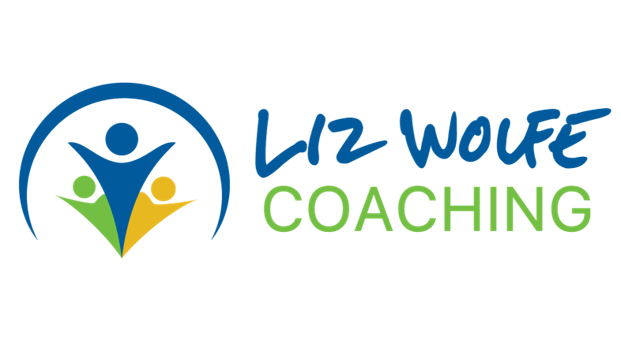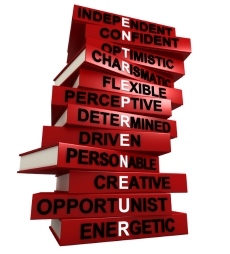20 Feb To Thine Own Self Be True
I have two older sisters – two brilliant, creative, beautiful, expressive and overshadowing older sisters.As the youngest, I came up behind them in school and had many of the same teachers. I endured them calling on me in class by “Jennifer” and “Ruth Anne” or being constantly compared to their talents, their schoolwork, and their grades.
This impacted my upbringing so much that for my college admissions essay I wrote about an interaction that my friend had:
One day, a friend of mine told me a story about having gone to see the school nurse. This particular nurse is the type who knows almost all the students and loves to talk. During the time Mary was in the office, she mentioned that she was friends with one of the “Wolfe Girls.” The nurse was delighted. She said, “Oh, yes! Ruth Anne is so wonderful. She’s so talented and smart and is a wonderful actress. And she dances so well!”
Mary said, “No, not her.”
And the nurse said, “Oh! Jennifer! She’s such a good piano player and she’s really wonderful, too, and…”
But Mary had to say, “No, not her either.”
“Then who are you friends with?” the nurse asked.
“Liz,” said Mary.
“Oh.”
That she didn’t know who I was or any of the talents I possessed reinforced a belief that I had been secretly harboring – that who I was, wasn’t worthy of shouting out to the world. From my childish perspective, I thought that my brilliant sisters had already “found” themselves and knew where they were going in life. At that time, my main interest (and the one that distinguished me from them the most) was photography, and so I became a photography major.
A common reason that people sign up to take my workshops or coach with me is to discover what they want to do. Perhaps they’ve been trudging along in life and have lost their spark. Maybe they thought they wanted to do something but now it doesn’t seem right. In some cases people have focused their entire lives on something they don’t even like because someone told them they should.
I’ve noticed there is a societal expectation that we should pick something we want to do from a very early age and pursue it by education and vocation. We love “experts” and success stories of people who “stuck with it” and “followed their life-long dreams.” When we show up in ways that are not consistent with what is expected of us, people question us. We are labeled as “flaky” and “undependable.” It is frowned upon to change mid-stream.
And if we do change, we call it a “midlife crisis” or say that we are “reinventing” ourselves. There is an expectation that we will have to start over in order to move forward. If we do know someone who is talented in many areas, we call them a “renaissance” man or woman. There’s an underlying expectation that we can only be good at one thing.
We love predictability and to that end, we expect certain behaviors from each other. When we start out in a “new” career, we are thought to be novices. We often have to go to great lengths establishing ourselves by working long hours or getting a new degree. Once we’ve established ourselves as one thing (in my case, a computer trainer) others view us as that thing, and the new thing (abundance coach) seems out of alignment of who they thought they knew.
“Be yourself. Everyone else is taken.” – Oscar Wilde. Funny and not funny at the same time, I can relate. Growing up what I wanted more than anything in life was to fit in. So I imitated other kids, the way they walked, talked, what they did. My need for approval was so great that I didn’t notice that I had my own creativity to express. I compared myself to my sisters, my peers, and the expectations of my family and never quite seemed to measure up.
The most profound awakening that I had surrounding my own transformation was not so much a discovery of my “greatness” or authenticity as it was giving myself the permission to express it. Once I got the hang of that, I created a string of opportunities, each one snowballing into the next. In retrospect I can see the organic nature of the journey, even though at the time it seemed like I was merely job hopping.
In being true to yourself, I recommend the following:
- Ask yourself: What am I passionate about right now? 30 years ago for me it was photography, but now it’s coaching people on creating abundance and prosperity in their lives. In between, it was singing, desktop publishing, leadership program coordinator, mother, school volunteer, artist, writer. Who knows what tomorrow will bring?
- Give yourself permission to be passionate about what you’re passionate about. You’ll never know if you even want to do something if you never try it.
- Give yourself permission to stop doing something when you’re no longer passionate about it.
- Comparing yourself to others is a sure fire way to lose. There is no way (and no need) to ever be the same as the people you are comparing yourself to.
- Let go of expectations of what things are supposed to look like. A Louise Hay affirmation says, “I flow freely and lovingly with life. I love myself. I know that only good awaits me at every turn.
- Let go of conversations that inhibit you from expressing yourself originally and passionately. These conversations go something like, “At my age…” “People won’t like…” “I’m embarrassed to…” “I’m not good enough…” “No one cares that I…”
- Let go of caring about what others think of you or what you are doing. Expending energy on what other people think means you’ll be more focused on them and their opinions than the actual expression of your authenticity.
Let’s tackle this idea of “discovering” yourself. The thing I don’t like about this is that it seems like there is a “you” to “discover.” Looking back, that’s what sent me down a hopeless path of self-consciousness way back when. Who was I? When was I going to discover it? I had a grasp on all the things I was “not” but couldn’t figure out who I “was.” And – fear of fears – what if I was NOT who I wanted to be? I couldn’t possibly live up to that person. It would mean a lifetime of the “imposter” syndrome, where I would have to fake it my entire life, hoping that no one would find out that despite all my accomplishments, I was a fraud.
Transformational principal # 1 states: Life is created. Who you are is not to be discovered. Rather, it is to be created. You will not “find” yourself. You will invent yourself. So that means, to be true to yourself is to express whoever you say you are now, and now, and now… and now again.
Existentialists believe that to choose what’s best for ourselves in any given moment is a creative act. Thus, we should say: “Invent yourself. To hell with what everyone else is doing.”
 Have you ever wondered about your own strengths and weaknesses as the “CEO” of your business? I’ve created a quiz that can help you gain insights into your leadership style and areas for growth. It’s a fun way to reflect on your skills and discover opportunities for development. Take the quiz and unlock your CEO potential today! Click here to take the quiz.
Have you ever wondered about your own strengths and weaknesses as the “CEO” of your business? I’ve created a quiz that can help you gain insights into your leadership style and areas for growth. It’s a fun way to reflect on your skills and discover opportunities for development. Take the quiz and unlock your CEO potential today! Click here to take the quiz.


